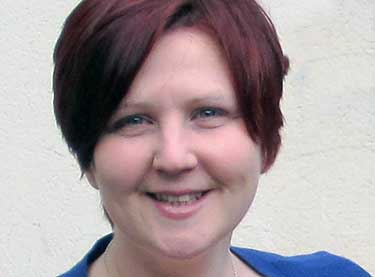‘There is no doubt that our current system is letting people down, to the point where people have died.’
That’s one of the key statements about mental health services in York from an in-depth report released today (Sunday).
The report, Breaking Point: A recent history of mental health crisis care in York, by Healthwatch York, finds that services are struggling to support people, some of whom feel they have been failed at all levels.
It recognises that “staff members are under significant pressure and require more support and training to provide the best possible care for those in crisis”.
But York residents find it “hard, sometimes impossible, to access help when it is most needed”.
“Some of the problems stem from under-funding, but others appear to be cultural – poor training, poor communications, poor attitudes,” Healthwatch York said.
Hospital ‘failed in some circumstances’

The report outlines significant concerns about York’s 72-bed Foss Park Hospital, purpose-built for people with mental health problems.
“We found that Foss Park Hospital has been the site of several disturbing incidents involving patients with mental health issues,” the authors write. “The hospital appears to have long waiting times for patients and discharges that may have been premature.
“The first story mentioned is about a young woman who attempted suicide and was admitted to Foss Park only to be discharged and attempt suicide again.
“When the police found her, there were no ambulances available to transport her, so she had to wait in a police van for hours before being seen by a paramedic. Another young girl who was discharged from Foss Park completed suicide shortly after leaving the hospital.
“Some patients appear to have been neglected after being discharged from Foss Park.
“Overall, these stories paint a picture of a hospital that has struggled to meet the needs of some patients and has failed in some circumstances to provide adequate care to people with acute mental health needs.”
‘Judgmental attitudes’

The authors also spoke to people who had ended up at A&E at York Hospital at crisis point.
The report said: “There seems to be a lack of understanding of mental health issues in A&E or the capacity to deal with them.
“We found people being discharged with their physical health issues treated, but without adequate treatment for their mental health concern.
“We found inconsistent and sometimes judgmental attitudes from healthcare providers, inadequate follow-up care, lack of communication and coordination between different healthcare teams, and dangerous assumptions made about patients’ situations.”
The report also found
- a need for “more integrated and holistic approaches to treating addiction and mental health issues”
- a need for improved communication between mental health teams
- that community support services can be very effective when they are delivered by people with lived experience of mental health challenges
- people feel that crisis aftercare is disjointed and inflexible
- many people in crisis experience long waiting times and inadequate responses when calling crisis lines.
In-depth interviews
Healthwatch conducted 29 in-depth interviews collecting 59,611 words and 410 specific statements about mental health crisis care: 55 positive (13%) 320 negative (78%) and 35 ideas (9%).
There were stories of excellent care, and staff going above and beyond to help individuals.
But many people shared experiences of feeling dismissed and stigmatised when they were in crisis wherever they turned for help. Some told Healthwatch York they felt crisis support and after-care was either inaccessible or of such poor quality it was ineffective.
“Without urgent action, we will continue to fail some of our most vulnerable people,” the report went on.
Suicide and self harm
According to the York Health and Wellbeing Joint Strategic Needs Assessment (updated in May 2023), the suicide rate in York is currently in line with the national average but has been high in recent years.
The rate in York is higher than many of York’s statistical neighbours for both men and women. Self-harm is also identified as an area requiring improvement.
The rates of York residents admitted to hospital for injuries relating to self- harm is higher than most of its statistical neighbours.
The rates are particularly high for self-harm admissions in young people aged 10-24, but most notably in those under the age of 20.

Siân Balsom, manager at Healthwatch York, said the report was not an easy read.
“It evidences the challenging recent history of mental health crisis support in York and the significant gaps and issues we are all too aware of and are seeing both locally and nationally.
“The report highlights how important it is to improve services. We must look to the future, build on some of the changes that give glimmers of hope and create services that delivers better care for people when they most need help.
“It is vital that the voices and experiences of people who have accessed crisis care, or been unable to, are part of the process to develop services that work for everyone.
“They must sit alongside those who buy our services and those delivering them to create a crisis service worthy of the name.”
[adrotate group=”3″]
Zoe Campbell, managing director for North Yorkshire and York at Tees, Esk and Wear Valleys NHS Foundation Trust, said: “It’s incredibly important that we listen and act upon people’s experiences. This will help us, along with our partners, to drive forward improvements and make sure that everyone receives safe and kind care.
“There continues to be an unprecedented demand for mental health care throughout the country. We’re committed to providing a better experience for people in our care and there is a great deal of work underway to improve crisis services, as well as preventative care in York.”
[tptn_list limit=3 daily=1 hour_range=1]
